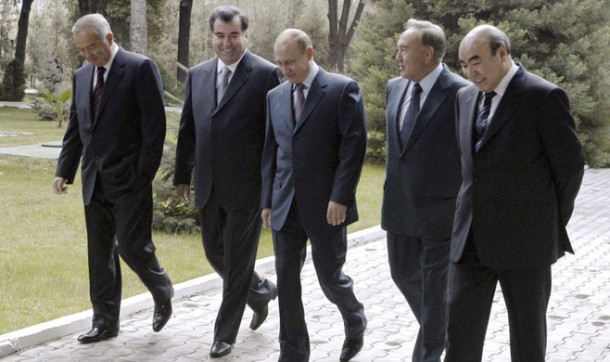The Eurasian Economic Union, first nurtured as an idea by the Kazakh leader Nursultan Nazabayev over 20 years ago, and recently championed by Vladimir Putin, has been brought to life on 1st January this year. Its first member states of Russia, Kazakhstan and Belarus were swiftly joined by Kyrgyzstan and Armenia.
Now the ambition to later engulf Tajikistan and create ties with Israel, Vietnam, Syria and rows of other countries poses an unavoidable question of whether the union is actually economically beneficial for its members or is there a different incentive that encourages more and more countries to look into attaching to it.
The formation, preceded by a trail of other forms such as the Customs Union and Common Economic Space, apparently, is the final shape of Mr. Putin’s ambition to counterweight European Union and the West. In fact, it works analogically to the European Union, introducing free movement of people and goods on its territory and posing itself at the moment as just an economic tool. Unlike its predecessors the new organisation will also set the aim of producing a common economic strategy including same rules for tax and trade which means a whole new level of economic integration. Another novation is that the union is given a legal personality.
Functioning for less than a year, it still works at the stage of pure “aims, plans and intentions”, as was put on the Eurasian Integration Institute website, which makes it difficult to discern any progress made by any of these counties’ economics since January. According to Kremlin, the full harmonisation of policies with the union will happen no earlier than within 10 years.
Since the very collapse of the USSR in 1991, Russia tried a multitude of attempts to reunite the republics under various flagships. The Eurasian Union became a peak of this 20 years old campaign and the most viable of all previous projects.
The turmoil of economic sanctions sucking streams of finance out of Russian economy and dropping oil prices that Russia relies on undermined rouble and costed a fortune to the closely tied economies of Kazakhstan and Belarus. Once willing to create a new common space, Kazakhstan and Belarus are now playing cautious with its big neighbour warning it that they are only in as long as it is beneficial for them.
Armenia, exhausted by the military conflict with Azerbaijan and heavily dependent on Russian market, and Kyrgyzstan enticed by $1.2 bn out of which $16.4 have already been sent, had little option but to join in.
At last, this far the EEU has only been causing huge expenses, mostly fallen onto Russia’s shoulders. Just the amount of direct expenses for it sums up to $5.2 bn this year. “Moscow wants supranational formations to feel powerful, and leaders of neighbouring countries want specific things”, says expert Andrey Piontovskiy.
The union, producing the 6th greatest GDP in the world is going to become the world’s biggest supplier of oil and gas and 4th biggest supplier of coal. It is certainly a vast and important market but the moment it becomes fully functional and competitive is yet to be seen. And if it is not, this is going to be Vladimir Putin’s ruined last chance to make the global economy bipolar.

